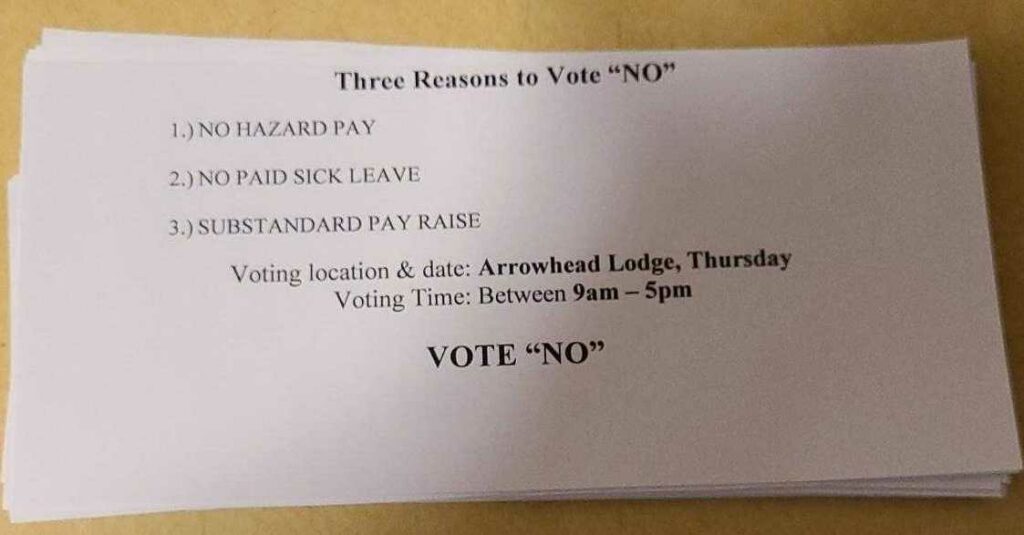Workers at two Cub grocery stores, two Super Ones, and a SuperValu in and around Brainerd, Minnesota recently approved a new two-year contract between their union and their employers. Though their union, the United Food and Commercial Workers Local 663, trumpeted their agreement as one that “increases wages for all members, maintains current health and welfare benefits, secures retirement, and improves other benefits and working conditions,” one-third of those voting rejected the contract.
While the contract represents five stores in a rural region, voting is only held for one day in one location, from 9 a.m. to 5 p.m. The workers are not informed of any contract details until the day of the vote, where they receive contract highlights from staff. There are some workers on the negotiation team, but they are under a strict gag order and are not allowed to discuss details of the contract ahead of the vote. Besides negotiating a contract, Local 663 has a minimal presence in the stores: there have not been stewards appointed for years, the business agent shows up only twice a year, and the local has only one meeting a year in Brainerd.
Due to this general neglect, the workers have become mostly apathetic to the union, and only 111 out of the around 400 workers at these five grocery stores turned out to vote. John, a long-time worker at one of the stores, says, “If you didn’t know any better, you’d think this was a non-union store.” Back in the nineties, workers described the grocery stores as having leading wages and benefits for retail jobs in the area. Now, their starting wages are at the bottom. While entry-level workers over the life of the new contract will get a raise from $10.86 to $13.25, workers at the non-union Fleet Farm start at $15 and the local Costco begins at $17.
Despite the pandemic making it clear the importance of paid sick leave, it has never been offered by these stores. In addition, starting part-time workers are rarely promoted. One worker, for instance, spent over eight years working in the same store before being moved up to modified part-time and gaining health benefits and a pension. These promotions are entirely at the whim of management, who nonetheless has hired entry-level workers for full-time positions.
The situation is even worse for custodial workers. These workers are mostly disabled, and only one in the last three years has been promoted to regular part-time or full-time. This is despite many asking for promotions. Even worse, unlike every other worker at the store, these workers are ineligible for holiday pay. The new contract does not change that, despite other contracts by 663 not containing this carveout.
This contract vote comes as Local 663 has expanded to become one of the largest unions in Minnesota, and the largest UFCW local in the Upper Midwest. While the current President has overseen some new organizing, much of this growth has been a result of mergers with two meatpacking locals in Southern Minnesota. These mergers have been sold to the membership as allowing for increased representation, but John insists that representation has actually gotten much worse over the last decade, which begs the question of why these mergers are being done in the first place.
While this contract was approved, John believes that the workers who voted against this contract provide a good base to organize in preparation for the next vote in two years’ time. “It’s an indictment of both management and union,” he says, “management because they pull this crap, and [the] union because they let them get away with it.”


